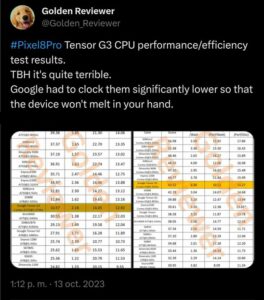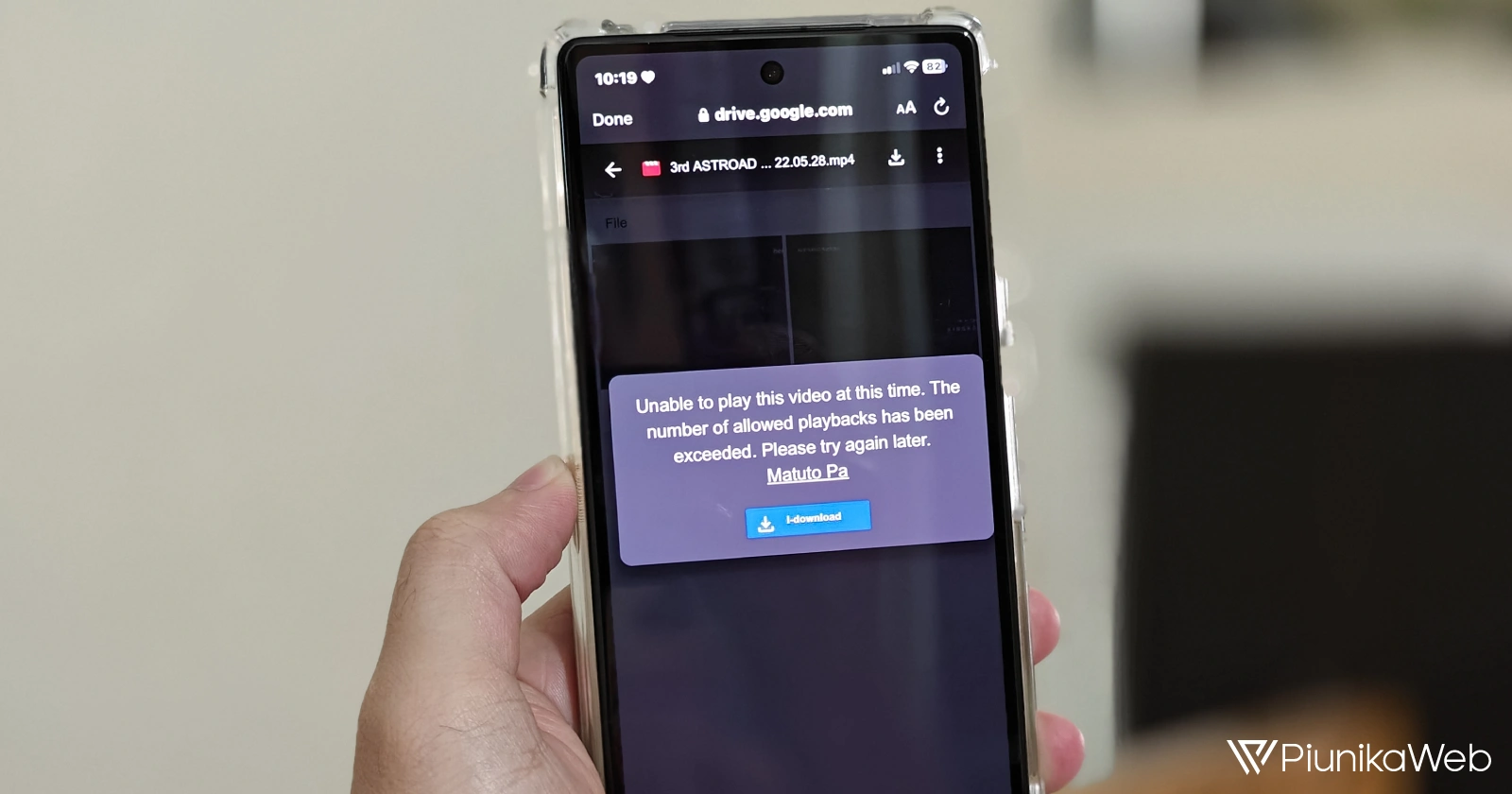‘Overheating’ and ‘signal drops’ have been sadly common terms among Google Pixel users since the company started using Tensor SoCs. After all, this hardware is based on Samsung’s Exynos chipsets, which have suffered from the same problems in recent years. Now, it seems that the latest Pixel phones are also in the midst of a similar situation.
Since the launch of the Google Pixel 8 and 8 Pro, there have been some reports of thermal and mobile network issues that are reminiscent of what happened in the latest Pixel phones generations.
Tensor-powered Pixel 8 & 8 Pro presenting thermal & mobile network (weak signal) issues
Due to issues like poor power efficiency, overheating and lower performance compared to the competition (especially Qualcomm), Exynos chipsets have gained a certain bad reputation among users. There is a sort of ‘consensus’ in the community where they would prefer the use of Snapdragon hardware in all Galaxy flagship models worldwide.
For some years now, Google and Samsung have been working closely together, with the South Korean tech giant being the main supplier of key components for Google Pixel products. For instance, since the Pixel 6 series, these devices use screens, cameras (except for the ‘Pixel a’ models) and processors produced by the company.
Google Tensor chipsets are hardware platforms customized by Google, but they use Exynos design as a base, as well as Samsung’s manufacturing process, so both chip families are practically ‘siblings’. This means that they will share things in common, both virtues and potential problems.
In the past, we have covered multiple complaints from Google Pixel users about overheating (1, 2, 3), battery drain (1, 2, 3), signal drops or low coverage (1, 2, 3). So, with this background, naturally many fans were concerned about the launch of the Pixel 8 series, as Google continues to use Exynos modems alongside Tensor chips.
Sadly, it seems that some people have encountered issues similar to those they experienced on previous Pixel phones. More specifically, there are Google Pixel 8 and 8 Pro units presenting weak signal and/or thermal (overheating) problems, which is causing quite a bit of frustration.
The alleged overheating problem
Social platforms and forums have been filling up with reports of Pixel users complaining of higher than normal temperatures. It’s noteworthy that every smartphone will heat up with use at some point (especially in demanding tasks), but this becomes a problem to highlight when it is even uncomfortable to hold the device in hand.
High temperatures in a mobile device not only affect the comfort of use, but even performance. If a chipset is not able to keep the heat efficiently controlled, it will have to do ‘thermal throttling’ to avoid hardware damage. That is, it will aggressively lower CPU and GPU clock speeds to reduce temperature, negatively impacting performance.
The possible presence of this problem was already noticed shortly after the launch of the Pixel 8 series, once analysts were able to test them. For instance, in tests performed by the YouTube channel PBKreviews (‘Wild Life Stress Test’ from 3DMark benchmark), Pixel 8 and 8 Pro received a stability result of 52.5% and 58.7% (respectively). This indicates that the peak performance of the chipset plummets after a short time.

Leaker Golden Reviewer (Golden_Reviewer on X/Twitter) had also published energy efficiency tests where the Tensor G3 chipset lagged far behind the main competitors in the market, only being on par with Exynos hardware. You can check the detailed results and comparison here.

Mobile signal quality dividing opinions
Regarding the Google Pixel 8 series signal reception or mobile network quality, there seem to be divided opinions. There are reports of users complaining of poor mobile connectivity or phones struggling to pick up signal, even in areas where a previous generation model (Google Pixel 7 series) had good reception for them.
On the other hand, there have also been reports of users praising this section in their Pixel 8 devices, claiming that the signal reception has improved significantly, even being able to use the mobile network in areas where they previously had problems for that. So, at least in this section, there still does not seem to be a consensus, but the background makes multiple people ‘alert’.
For the Pixel 8 series, Google implemented the Exynos 5300 to manage mobile network and signal aspects. This is the same base modem present in the previous generation (Pixel 7 series), but with a couple of key improvements, among which highlight a new, more efficient manufacturing process (Samsung’s 4 nm EUV).
In previous generations, once reports of similar issues began to emerge, they never seemed to receive a definitive fix since the reports reappeared after each monthly update. Hopefully the situation will be different this time around so that Google Pixel 8 users will finally receive the experience they deserve.
PiunikaWeb started as purely an investigative tech journalism website with main focus on ‘breaking’ or ‘exclusive’ news. In no time, our stories got picked up by the likes of Forbes, Foxnews, Gizmodo, TechCrunch, Engadget, The Verge, Macrumors, and many others. Want to know more about us? Head here.



